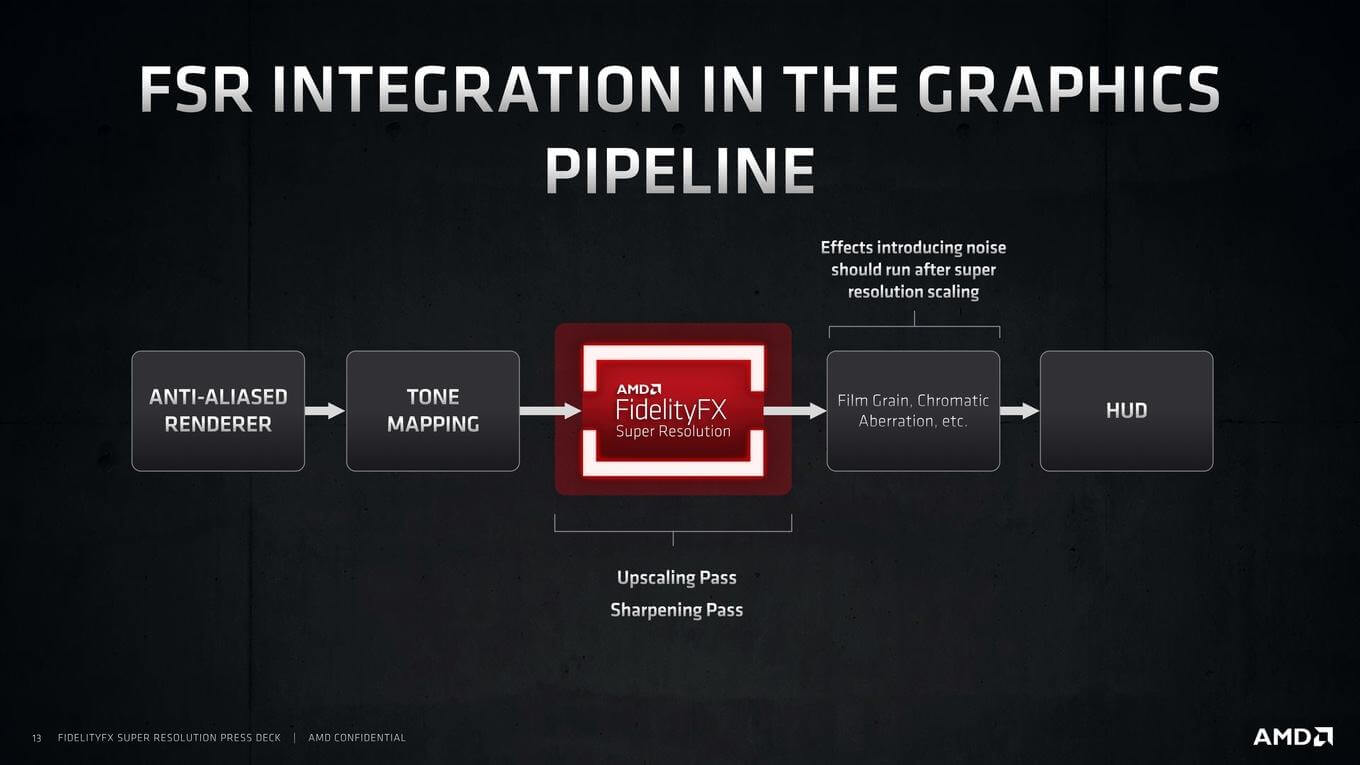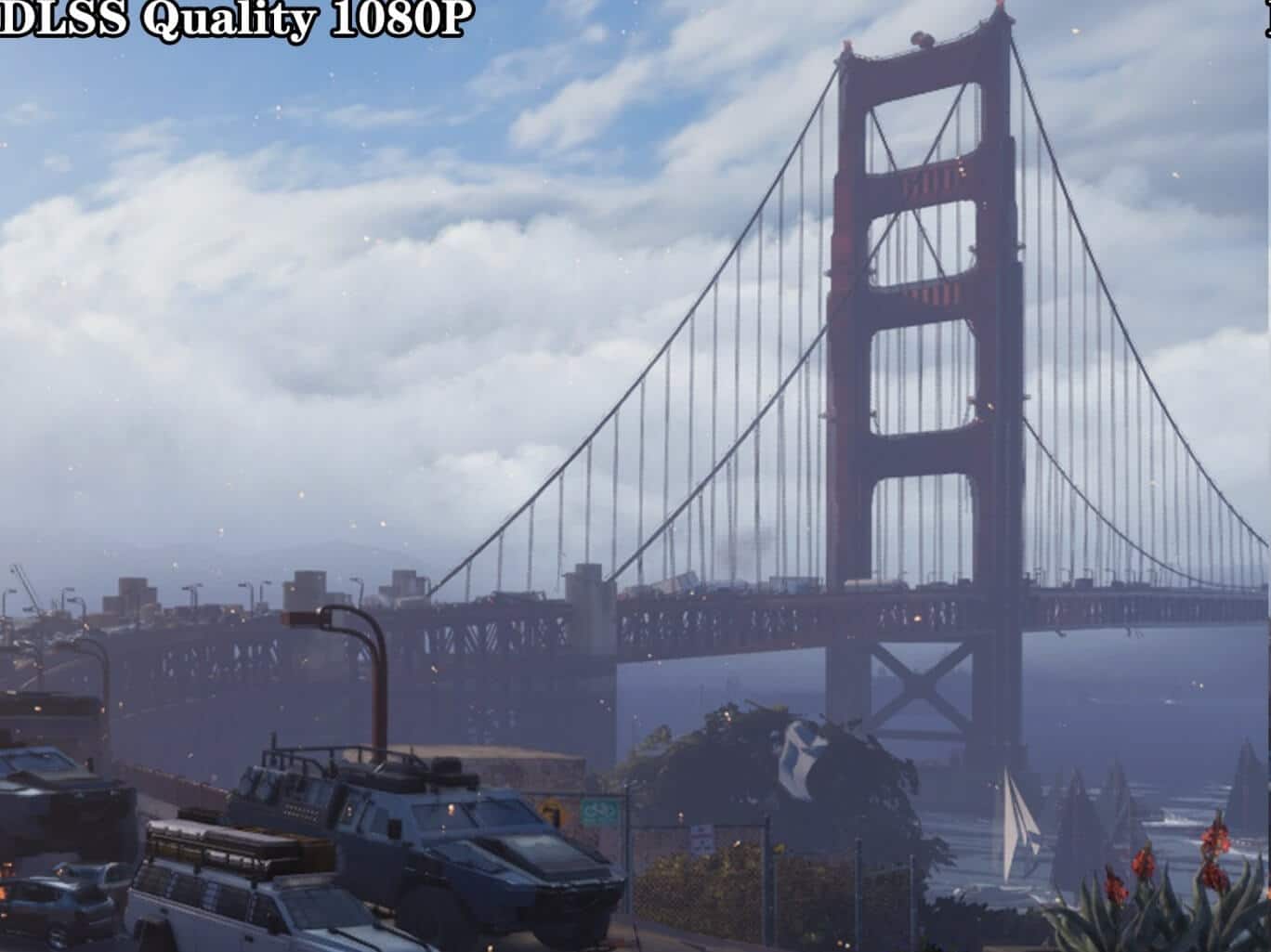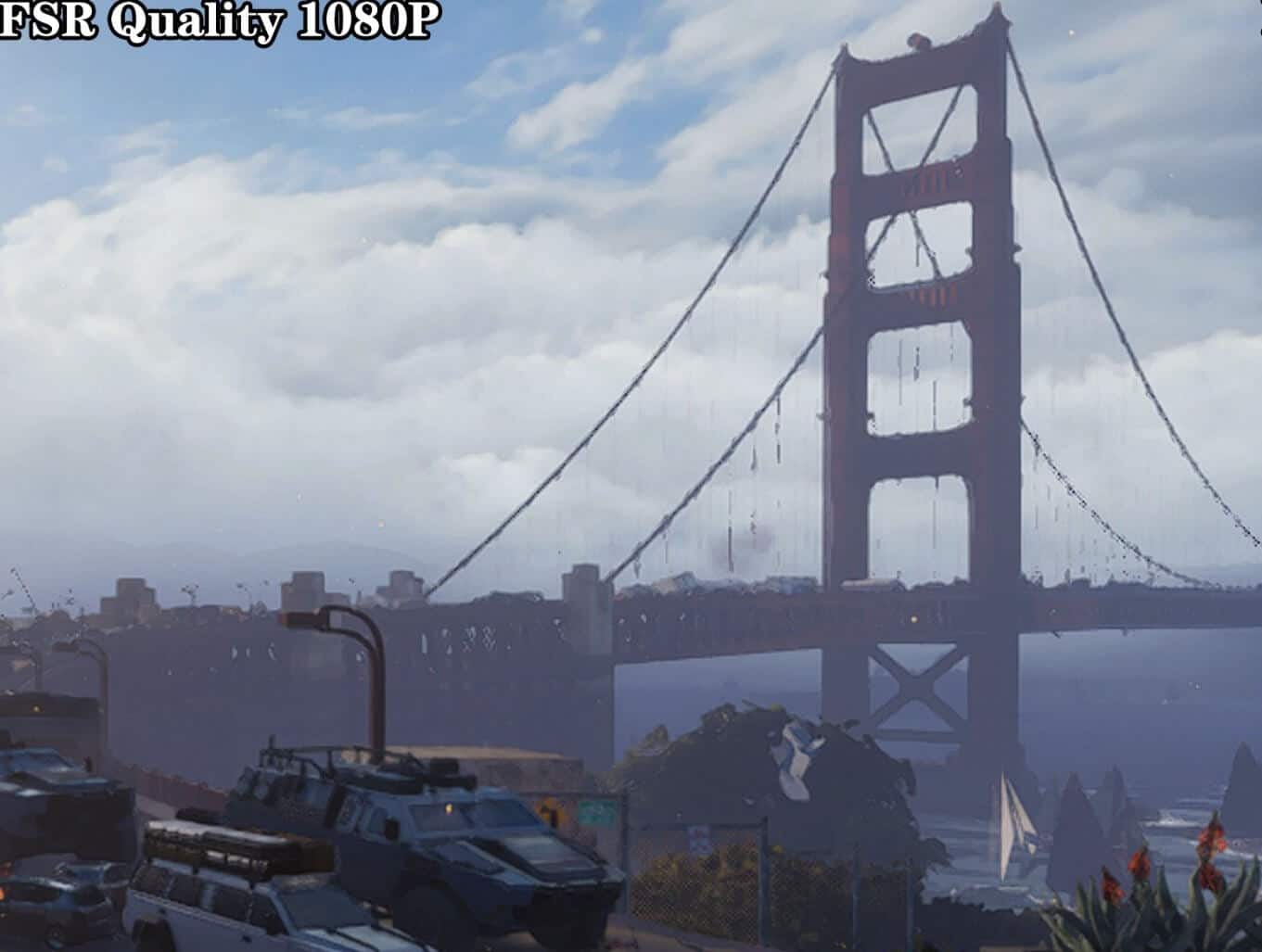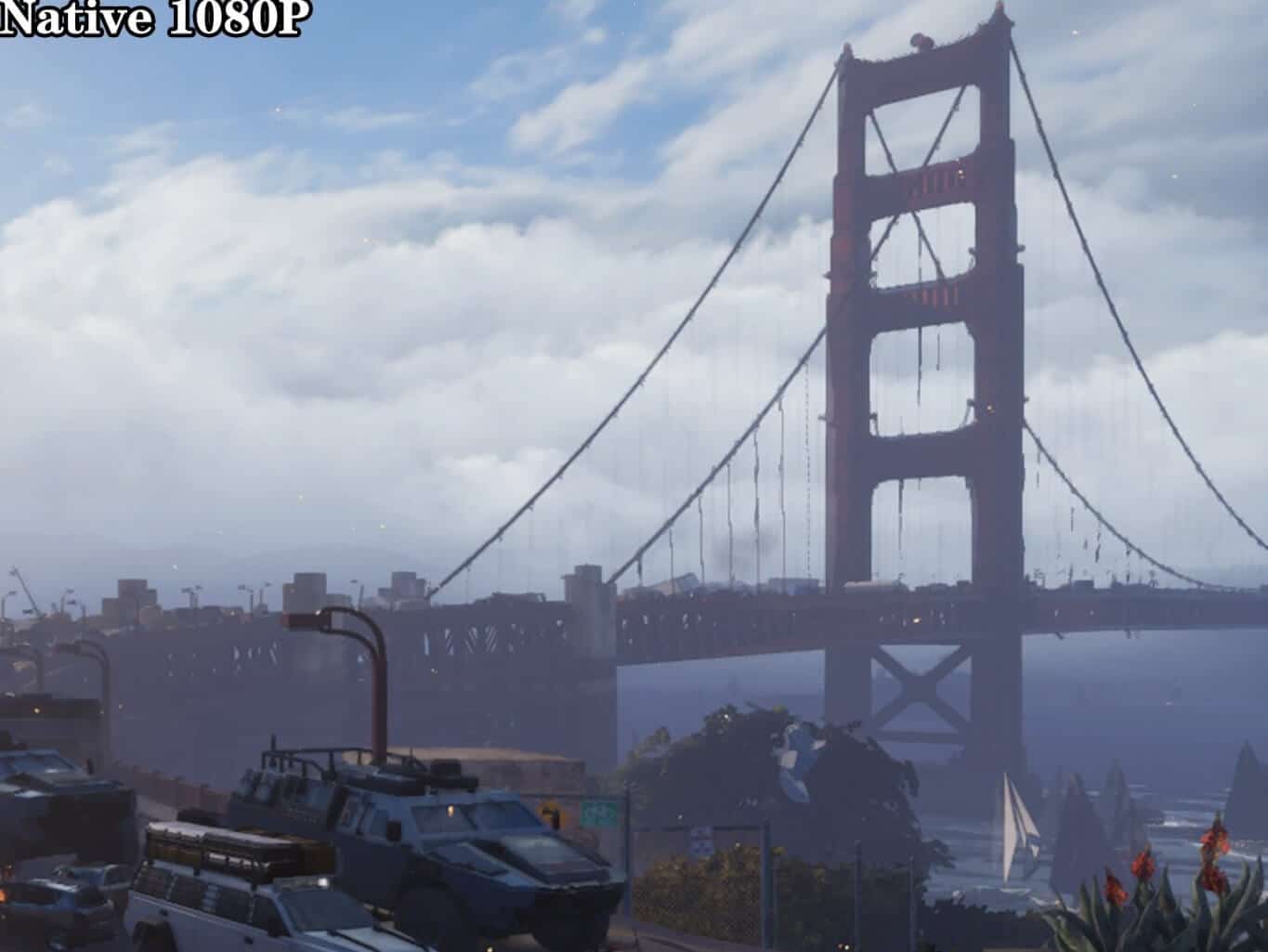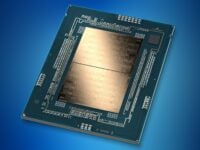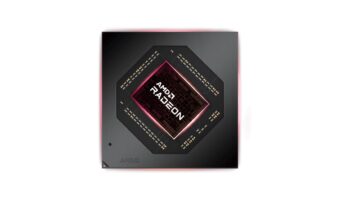The first titles supporting both NVIDIA DLSS 2.2 and AMD FSR are here in the form of Marvel’s Avengers and Necromunda: Hired Gun. Unfortunately, since I’m out of the office at the moment, I haven’t been able to test out either of them. Many talented gamers, however, have done an excellent job comparing the two upscaling technologies. Let’s have a look:
In the above shot, DLSS’s advantages are pretty clear. Since it’s essentially a temporal upsampling algorithm, accumulating frames while also using its experience to smooth out aliasing. DLSS retains more detail than both native 1080p as well as the FSR upscaled 1080p image. FSR suffers from loss of detail, especially thin objects and lines such as the bridge cables, poles, and power poles.
The same can be seen with the second image. FSR loses a considerable amount of detail (bridge’s suspension cables and water textures) compared to native 1440p, while DLSS Quality is able to retain much more detail due to data from the previous frames. This just goes on to show how effective temporal techniques can be when implemented properly.
The differences with character face models are even more prominent. DLSS produces much sharper images, rendering the hair strands with near-perfect accuracy (once again better than native). The eye reflections are also more pronounced with DLSS, with the facial texture details also being preserved with more clarity. FSR Quality also does a decent job considering how it’s a simple spatial upsampler but suffers from loss of detail with thin objects and lines such as the hair strands.
One thing is clear. DLSS is superior to FSR in every aspect. However, the fact that it runs on just about everything capable of rendering a 3D image, and offers more flexible performance remains one of its key advantages. We’re very interested in seeing how AMD improves FSR with its second iteration, with a possible temporal or AI-upscaling pass.
